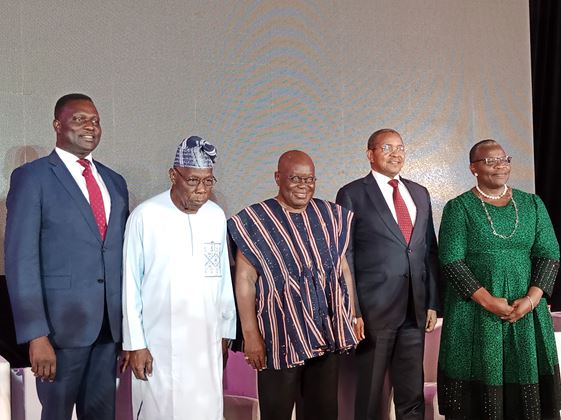By Ernest Bako WUBONTO
President Nana Addo Dankwa Akufo-Addo has accepted the responsibility to champion foundational learning at African Union (AU) level to underscore education’s critical role as the fulcrum of development.
In a bold move to address the escalating learning crisis in sub-Saharan Africa (SSA), where a whopping nine out of 10 children cannot read by the age of 10, President Akufo-Addo has expressed his interest in leading efforts to enhance foundational learning outcomes across the continent.
Speaking at a Presidential Dialogue on Education organised by Human Capital Africa (HCA) in Acccra-Ghana, ahead of the African Union’s 6th Mid-Year Coordination Meeting, President Akufo-Addo conferred with the summit’s organisers on the importance of strong foundational literacy and numeracy education in building a brighter future for African youth.
He therefore pledged his commitment to giving the topic salience at the upcoming AU meeting for African leaders to prioritise investments in early childhood education, primary education and literacy programmes, ensuring accessibility and affordability.
“The role of quality education in driving sustainable development and fostering economic growth in Africa cannot be overemphasised. We as leaders of Africa need to address the challenges facing education systems across the continent with some urgency through coordinated action at the continental level,” he said
The president however stressed a need to acknowledge the current crisis’s cause – which is economic hardship – and identity ways to address economic challenges on the continent.
“We must recognise what led to the crisis in which we now find ourselves – which is the economic hardship exacerbated by COVID-19 pandemic. We won’t be able to overcome the current challenges if we don’t identify and acknowledge why we are here,” he added.
Founder/CEO-Human Capital Africa (HCA), Dr. Obiageli Ezekwesili, highlighted that as the sixth AU mid-year coordination meeting will be convened under the AU theme of the year 2024, ‘Educate an African fit for the 21st century: Building resilient education systems for increased access to inclusive, lifelong, quality and relevant learning in Africa’, it’s important to set the record straight on the state of education’s most important stage and drive policy decisions into action.
She mentioned that evidence from the Reading Inclusion Support in Education (RISE) programme study shows that foundational skills are crucial not only for individual economic gains, but also for the success of later educational interventions including technical and vocational training.
The former World Bank Africa Region Vice-President was of the opinion that as the AU has declared this year a ‘Year of Education’, what’s urgently needed is for esteemed political leaders to become champions of foundational learning.
“Heads of State must play the role of Chief Learning Officers, championing foundational learning at the highest levels. Not only do we require robust political leadership, we need frameworks and systems which allow us to drive foundational learning reform and track our progress. Your voices, your influence and your actions are crucial to turning the tide on this learning crisis and changing the story for our children,” she said.
Former President of Nigeria, Oluṣẹgun Ọbasanjọ, taking his turn as patron of education on the continent, stressed that African leaders must work with the African Union to develop a robust, continent-wide peer review and accountability mechanism to track progress on foundational learning goals.
This, he said, will serve as a measuring mechanism that will track progress and push each other to intensify efforts aimed at addressing FLN challenges.
“Education is beyond the issue of development, it is a matter of life and death. Education should be from cradle to the grave and our leaders must see it as such…Africa needs a peer review system for education, and that must be now,” he said.
Why Foundational Literacy and Numeracy now?
Sub-Saharan Africa faces a critical education crisis, with nine out of 10 children unable to read for meaning by age 10. Education is the fulcrum of development in all forms and foundational learning is the core. Therefore, improving Foundational Literacy and Numeracy (FLN) is crucial for healthcare, food security, climate change mitigation and economic development.
The UNESCO and World Bank are helping African countries to develop standardised assessment tools and improve data collection capacity.
The high-profile gathering comprising former African heads of state, dignitaries, AUC representatives, business leaders and education specialists aimed to reinforce governments’ commitment and drive action on national and continental learning goals.
Minister of Education, Yaw Osei Adutwum, highlighted that indeed foundational learning is very critical – but just a means to an end, and must be recognised as such in order for the additional resources needed to achieve meaning impacts be put in place.
He therefore highlighted the need to go beyond literacy and Numeracy, ensuring African children are also knowledgeable in robotics, STEM and AI, among others, at an early age.
President Akufo-Addo’s acceptance of this important responsibility signals a significant step forward in the collective efforts to transform education systems in Africa and secure a brighter future for generations to come.










